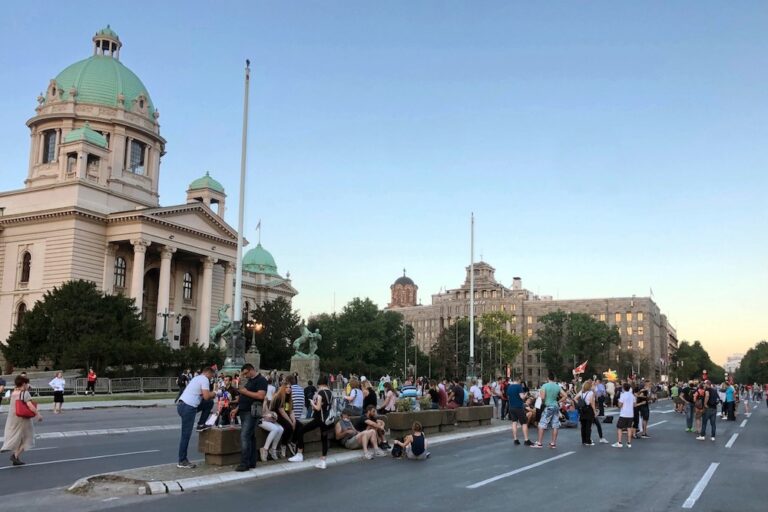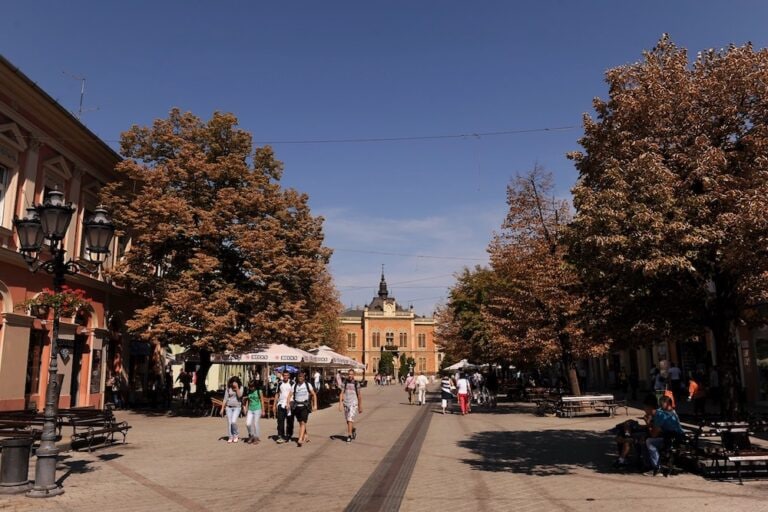(ARTICLE 19/IFEX) – The following is an ARTICLE 19 press release: **Updates IFEX alerts of 22 March, 19 March, 17 March, 16 March, 15 March, 12 March, 10 March, 9 March and 8 March 1999** 23 March 1999 – For immediate release AS SERBS STEP UP MEDIA ATTACKS, NGO CLAIMS THAT CENSORSHIP KILLS As tension […]
(ARTICLE 19/IFEX) – The following is an ARTICLE 19 press release:
**Updates IFEX alerts of 22 March, 19 March, 17 March, 16 March, 15
March,
12 March, 10 March, 9 March and 8 March 1999**
23 March 1999 – For immediate release
AS SERBS STEP UP MEDIA ATTACKS, NGO CLAIMS THAT CENSORSHIP KILLS
As tension mounts across the Balkans and two more local publications
face
closure by the Serbian authorities, ARTICLE 19 today postponed a
conference
on the media and conflict resolution in the region until all
participants
were free to travel, urging the international community to provide
effective
political and material support for the local independent media.
“A free and independent media offers an important conduit for regional
peace
and reconciliation, and for democratic development and control. “The
smaller
the space for the independent media, the less likely it is that local
people
will be able to have a stake in determining their own future and
challenging
political violence,” said Andrew Puddephatt, Executive Director of
ARTICLE
19.
Four Kosovo publications have been dragged through the Serbian courts
since
the beginning of March on illegitimate charges and without due process,
showing the importance which the Milosevic government attaches to
effective
censorship.”
A year ago, ARTICLE 19 raised the alarm over Kosovo, using a new Serbian
crackdown on the independent media as an early warning indicator of the
systematic suppression of information and rights. Military and legal
abuses
of fundamental rights by the state have been steadily escalating, the
Yugoslav non-state media is fighting to survive, and ARTICLE 19 fears
for
the physical safety of journalists who try to maintain their
independence.
On 15 March there was a bomb attack on the home of Dragan Alempijevic, a
correspondent with Belgrade’s daily Glas Javnosti. Two other journalists
have also been the targets of physical attacks.
Individual journalists have also been targeted for legal action for
articles
critical of the government. In one week, three media workers were
sentenced
to five-month prison terms. Many radio stations in the Federal Republic
of
Yugoslavia are banned, and the rebroadcasting of international radio
programmes is illegal.
ARTICLE 19 has been alerting the international community to the
systematic
repression of the media in the Federal Republic of Yugoslavia over the
last
year, including providing an analysis of the many ways in which the
Public
Information Law, being used to close down local media, falls short of
international standards.
ENDS
Notes
1. The conference (25-26 March 1999 in London) included practising
journalists from across the former Yugoslavia, plus international
governmental and media speakers.
2. The publications are Rilindja, closed for “illegal publication”,
Kosova
Sot, which is no longer on sale for fears that newspaper sellers will be
targeted by the authorities, Gazeta Sqiptare, fined heavily and the
independent Pristina daily Koha Ditore, which is fighting to stay open.


